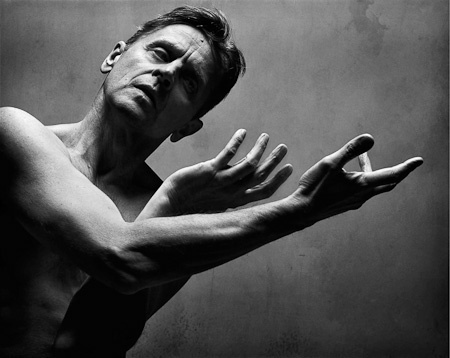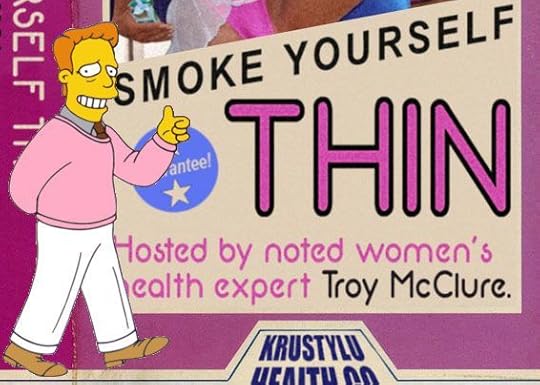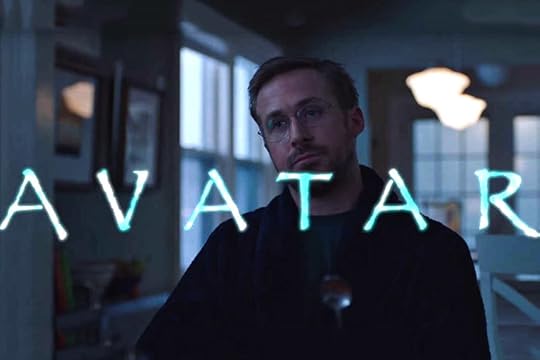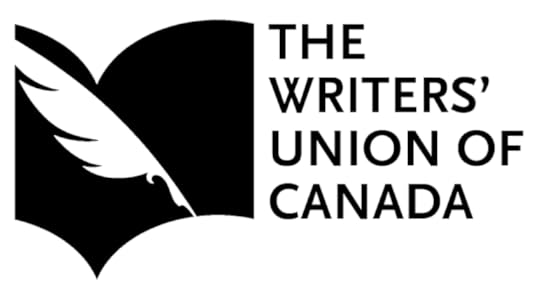Richard Harris's Blog, page 19
October 4, 2017
2017 English GG Finalist for Young People’s Literature – Text
A very big and resounding congratulations to my friend and Curling Was Full honourary member Danielle Younge-Ullman, whose most recent novel, Everything Beautiful is Not Ruined (great title, eh?), has just been named to the 2017 Governor General’s English Finalist List for Young Literature – Text.
I’d like to say good luck to the other finalists, but in truth I just want Danielle to win, so I’m sorry you other four guys.


Why Do Smart People Do Stupid Things?
I love it when the title of an article both creates its own post title for me and answers a burning question many of us have been wondering about for years!
Writing for The Guardian, Andre Spicer, co-author of The The Stupidity Paradox: The Power and Pitfalls of Functional Stupidity at Work, penned an informative piece called “Why do smart people do stupid things? It’s simple.” Long answer short: high IQ means superior analytical intelligence, not creative or practical intelligence.
Case in point.
“Being smart can come at a cost. Asking tricky questions, doing the research and carefully thinking things through takes time. It’s also unpleasant. Most of us would rather do anything than think. A recent study found that when left alone in a room, people preferred to give themselves electric shocks than quietly sit and think. Being smart can also upset people. Asking tough questions can quickly make you unpopular.”
Read the full article through the above link for more insight into this “smoke yourself thin” paradox.


Quote of the Day
“Who is John Galt?”
In the pop culture of modern fiction, there is perhaps no other opening line to a book that is so famous and yet so perfectly captures the true-to-life meaning behind it. “Who is John Galt” is almost like an inside joke that certain readers have among themselves, something akin to the secret handshake or password for fraternity/sorority members.
Ayn Rand is a towering literary figure of the 20th century, Atlas Shrugged remains one of the century’s most enduring novels, and “Who is John Galt” has today become one of the most quoted lines from literature.
If you’ve read Atlas Shrugged, then you know that John Galt is a “real” character, the inventor and businessman who formed a utopia of like-minded individuals in the booming metropolis of Ouray, Colorado. With the intention to “stop the motor of the world,” Galt organizes a strike of the world’s most important and influential creative thinkers.
First published in 1957, at the height of the Cold War, Atlas Shrugged is still one of the most divisive works of literary fiction. This leads to an important question: Does that line about John Galt – and Ms. Rand’s book as a whole – continue to have any relevance in today’s world?
As Mr. FIRST NAME Wiki, LAST NAME Pedia has written, “The book’s opening line, ‘Who is John Galt?,’ becomes an expression of helplessness and despair at the current state of the novel’s fictionalized world.”
If that’s the simplepedia answer to what the fork John Galt is, then the answer to the previous question is a resounding YES!
As Steve Paikin wondered aloud last night in an interview with Ramesh Srinivasan (@rameshmedia), author of Whose Global Village? Rethinking How Technology Shapes Our World, “Is the world going to hell in a handcart?”
Events over the last year or so would certainly lead one to at least consider this as a possibility, which I think makes the opening to Atlas Shrugged as timely and poignant today as it was 60 years ago. Ironically enough, Ayn Rand – founder of the Objectivist movement, staunch anti-communist and anti-Soviet (just read We the Living for one of the more depressing endings you’ll see in literature) – feared what communism could do to creativity and mankind in general if it survived long enough, and lo and behold China is set to become the world’s largest economy and global superpower within the next decade according to many experts.
Perhaps our own real-life John Galt will soon come along and save us from the perils we seem to be so successfully heaping onto ourselves. One can still hope.


Fonts a la SNL
Okay, so this is a funny freaking skit on SNL starring London, Ontario’s own Ryan Gosling.
If you think there aren’t any people out there who take fonts seriously, think again. I actually do work for a couple of clients who write about this subject with the gravitas one would expect to see and hear at a funeral.
Good job getting your Papyrus on, Mr. G!


October 3, 2017
Quote of the Day
“He wants the simplicity of finality, but it’s never like it is in the movies. It always lingers on. Like a song that ends a beat or two before it’s supposed to, it feels like there should be more but there’s nothing, just an empty space and a long, fading echo.”
― Katherena Vermette, The Break
It’s shocking that this is Ms. Vermette’s first novel. The range, tone and maturity she displayed in handling one of the most sensitive subjects imaginable was breathtaking. Aside from being a compelling story (I say “aside” so flippantly!), what is most remarkable about the storytelling is that it’s done in such a balanced way; it would have been so easy to make men or the police the bad guys in this novel, but instead the author balances this with the flaws we all exhibit as friends, loved ones, and parents.
And, of course, there are literary nuggets of gold throughout the novel like the one above. I highly recommend The Break (as do the other curlers in my book club) if you’re looking for something serious, handled in just as serious a manner, and eye-opening to issues that many of us would rather run away from than confront.
Per the summary on Goodreads, here’s what you can expect from The Break.
When Stella, a young Métis mother, looks out her window one evening and spots someone in trouble on the Break — a barren field on an isolated strip of land outside her house — she calls the police to alert them to a possible crime.
In a series of shifting narratives, people who are connected, both directly and indirectly, with the victim — police, family, and friends — tell their personal stories leading up to that fateful night. Lou, a social worker, grapples with the departure of her live-in boyfriend. Cheryl, an artist, mourns the premature death of her sister Rain. Paulina, a single mother, struggles to trust her new partner. Phoenix, a homeless teenager, is released from a youth detention centre. Officer Scott, a Métis policeman, feels caught between two worlds as he patrols the city. Through their various perspectives a larger, more comprehensive story about lives of the residents in Winnipeg’s North End is exposed.
A powerful intergenerational family saga, The Break showcases Vermette’s abundant writing talent and positions her as an exciting new voice in Canadian literature.


October 2, 2017
Editor Job Opening
Per the job description:
The Writers’ Union of Canada is seeking an Editor for its quarterly member-magazine Write. The position is open to members of TWUC (with the exception of those members on National Council and/or the Write Editorial Board) as well as non-members.
This is a part-time contract position with variable hours reporting to the Union’s Executive Director. Proposed start date: Late October/early November.
Click here for full details or to link to the application.


CBC Short Story Contest 2018
Want a chance at winning $6,000? Got a piece of short fiction ready to rock and roll? Then enter the CBC Short Story Contest by October 31, 2017. Click here for more details and to enter online.
Here’s the skinny on the contest:
WHAT YOU CAN WRITE: You can submit original, unpublished fiction between 1200 and 1800 words.
WHEN: The competition is open for submissions from Sept. 1, 2017 to Oct. 31, 2017.
WHO: All Canadian citizens and permanent residents of Canada.
HOW: While the competition is active, submit online through Submittable. A fee of $25.00 (taxes included) for administration purposes is required for each entry.
SUBMIT IN FRENCH: If you’re looking to submit to the French short story prize, you can enter here.
OTHER PRIZES: The 2018 CBC Nonfiction Prize will open in January 2018. The 2018 CBC Poetry Prize will open in April 2018.


3rd Indie Fringe Conference: October 14, 2017
Attention new, aspiring and indie authors! News from IngramSpark.
(For those not familiar with the Ingram Book Group, the largest distributor and wholesaler of books in the United States, here’s an excellent article from The Independent Publishing Magazine on IngramSpark and Lightning Source, a print and fulfilment company with facilities throughout the world.)
October 14th marks 2017’s last 24-hour, non-stop, online conference for indie authors hosted by Indie Author Fringe. This third conference takes place alongside Frankfurt Book Fair and focuses on running an author business.
To support your business growth, IngramSpark is waiving title setup fees for the final time this year, from now to 30th November 2017, when setting up either a new title or an existing title in a new format.


Relationships Confirmed by the Big Bang Theory
As many of my readers will undoubtedly know, I am a polymath of the highest degree. Like, way past the Ph.D. degree level. In fact, some have gone so far as to say that I put the “2+2” into “polymath.” Boom! Er…bang!
While thinking about the origins of the universe this morning (yes, I think about random things at random times of the day), I hearkened back to the discovery of Cosmic Microwave Background in 1964 by Arno Penzias and Bob Wilson, what astrophysicist Ethan Siegel (@StartsWithABang) described as “a breathtaking confirmation of the Big Bang” in his piece “The Big Bang Wasn’t The Beginning After All: Why you can’t extrapolate back to a singularity.”
How does this relate to human relationships on planet Earth, you ask? That’s a fair, fair, fair! question. I myself only realized how fair a question earlier this morning while simultaneously whittling a canoe from basswood and sipping away on my rocket fuel (i.e. Starbutts coffee).
Let me provide the reasoning behind Cosmic Microwave Background, only I’m going to substitute the word “Universe” with “Relationship,” “wavelength” with “distance,” “light” with “radiance” (as defined by Joyce), “energy” with “intensity,” and the ‘forming of atoms’ with ‘the ability to think.’
Ready for love explained in one easy scientific go of it? Per the 1964 theory that changed the way the world thinks about our origins:
An expanding Relationship doesn’t just mean that things get farther apart as time goes on, it also means that the radiance existing in the Relationship stretches in distance as we travel forward in time. Since distance determines intensity (less distance is more energetic), that means the Relationship cools as we age, and hence things were hotter in the past. Extrapolate this back far enough, and you’ll come to a time where everything was so hot that we couldn’t think straight.
Using Mr. Siegel’s title of his above-mentioned piece to conclude this post, a Relationship does not begin with a Big Bang, and what constitutes its inception cannot be inferred from a single event or moment. Put another way, and to be slightly more romantic, A Relationship, like the Universe, is just what Aristotle described more than two millennia ago: The whole is greater the sum of its parts; a couple – just like everything around us – is better together than separated into its individual units, no matter how much the radiance stretches in distance over time.


October 1, 2017
On Madness, Dance, Art, Sexual Deviance & Toska

Writing for The New Yorker, Joan Acocella wrote a piece a while back (that I only recently came across) titled “Mad Scene: Baryshnikov plays Nijinsky in the grip of insanity.” The article is evocative of so much that is right and wrong with the world, about the power of art, and the unfair nature of life.
I was not familiar with the name Vaslav Nijinsky before reading this article, but I’m glad I know a little more about Nijinsky’s life story now. Talk about a reversal of fortune! There’s a reason why nobody knows toska like the Russians. (For a definition of “toska” and some other interesting untranslatable words of a similar meaning, check out “14 Words For Sadness And Depression That Don’t Exist In English.”)
After being “discovered” in 1908 and life on a one-way escalator to the heavens, this is what happened nine years later:
“By the end of 1917 he was without work. He and Romola, with a three-year-old daughter, moved to Saint-Moritz, and there, over the course of the next year, Nijinsky slowly went mad. Eventually, he bought some school notebooks at the local stationer and began his diary, recording his horror over the First World War, his disgust with sensuality, his fear that the world was being destroyed, and his certainty that he was being hunted down, spied upon, slandered, poisoned. Sometimes he believed he was God—at the end of the first half of the diary, he signs off as “God Nijinsky”—while at other times he feared he had been abandoned by God.”
Eek!
Reading this piece reminded me of an Instagram campaign that went on for the month of September, “This is the face of suicide,” to support National Suicide Prevention Month. When you scroll through the photos of these people who look so “happy” and “full of life,” you can’t help but wonder the same question all those people left behind must have asked themselves: Why?
But I digress. I think the miracle of art – dance in this case – is that when you bring together genius in the form of director Robert Wilson and the tour de force that is Mikhail Baryshnikov, like they did in Letter to a Man, you can somehow manage to capture one of the most difficult human emotions to portray artistically: the mad, chilling feeling of losing the plot as you suffer through indescribable toska.
This one passage from the performance via the article by Ms. Acocella pretty much sums up how far gone Nijinsky eventually strayed from sanity:
“I am standing in front of a precipice into which I may fall,” we hear in voice-over. “I am afraid to fall.” Soon afterward, he is on a bench gazing at a mullioned window high above him. Are we in a church or an asylum? Very slowly, millimetre by millimetre—slo-mo is another Wilson trademark—he moves backward, staring at the window. And what does he speak of, in this solemn atmosphere? Sex. He is afraid that he has committed terrible sexual sins, and will again: “I am a beast, a predator. I will practice masturbation and spiritualism. I will eat everyone I can get hold of. I will stop at nothing.” Later, he will tell a story he heard about a woman who put something sweet up herself to get an animal to lick her. The creature who arrived to do the job turned out to be a gorilla, and in the course of receiving his attentions she died.














